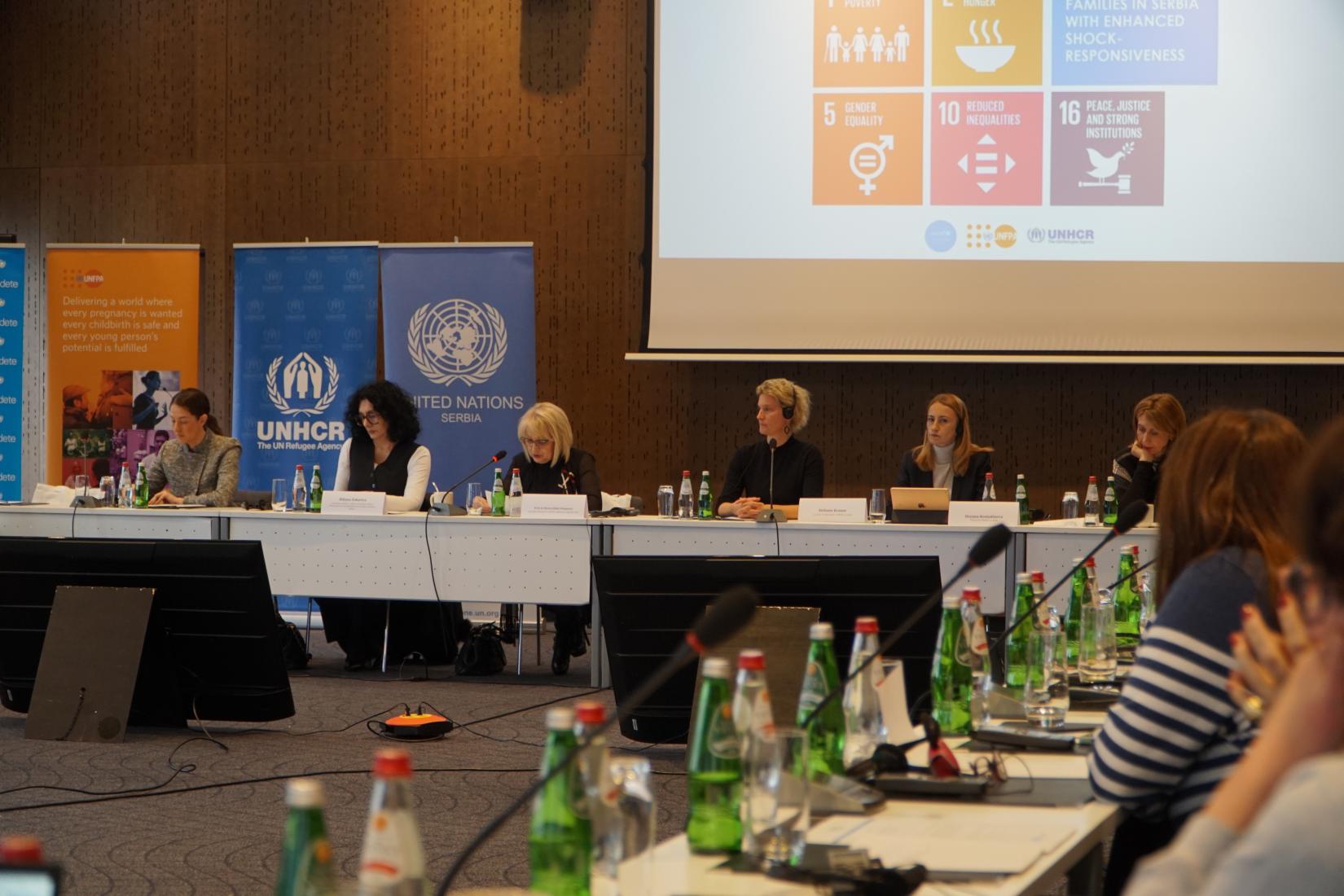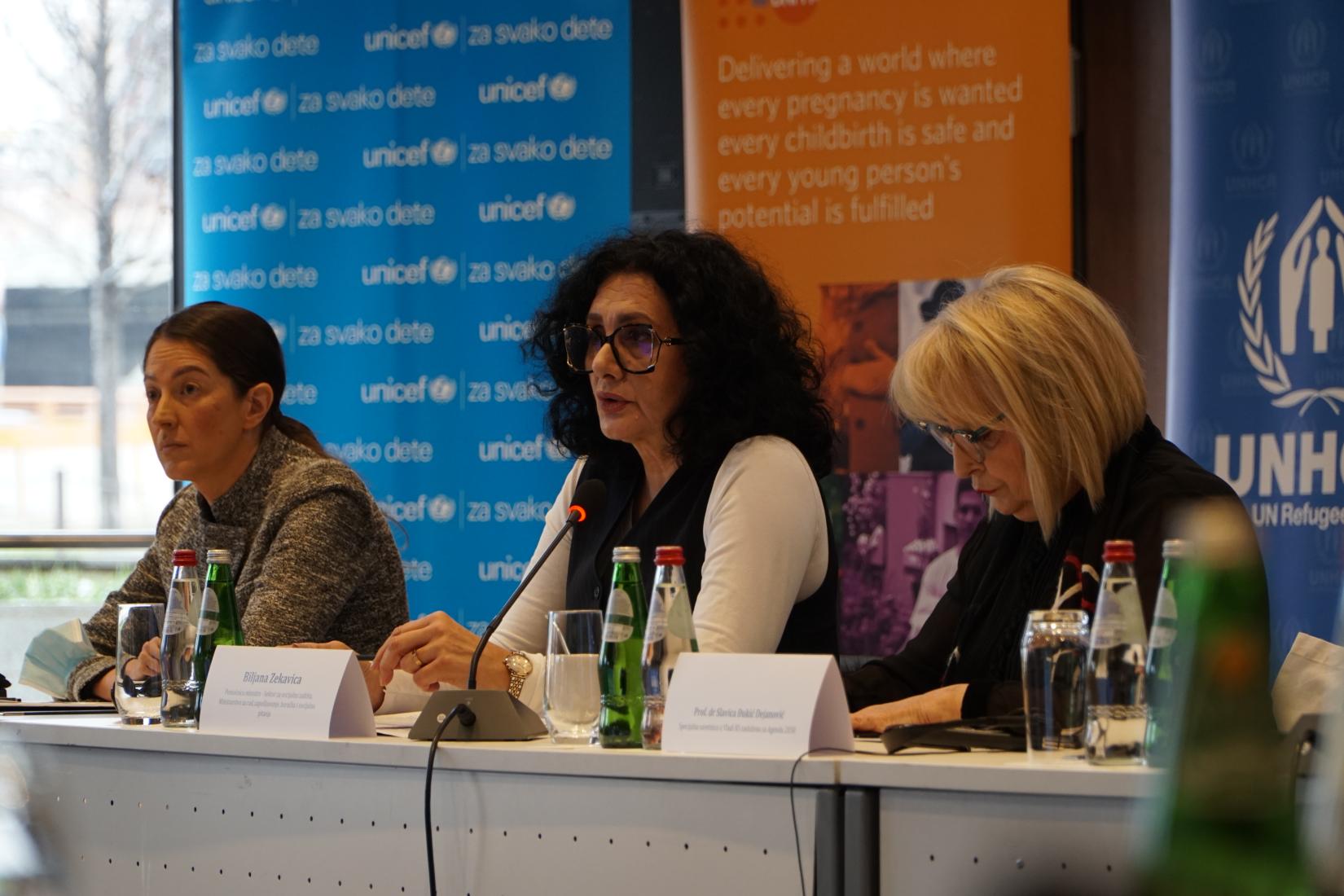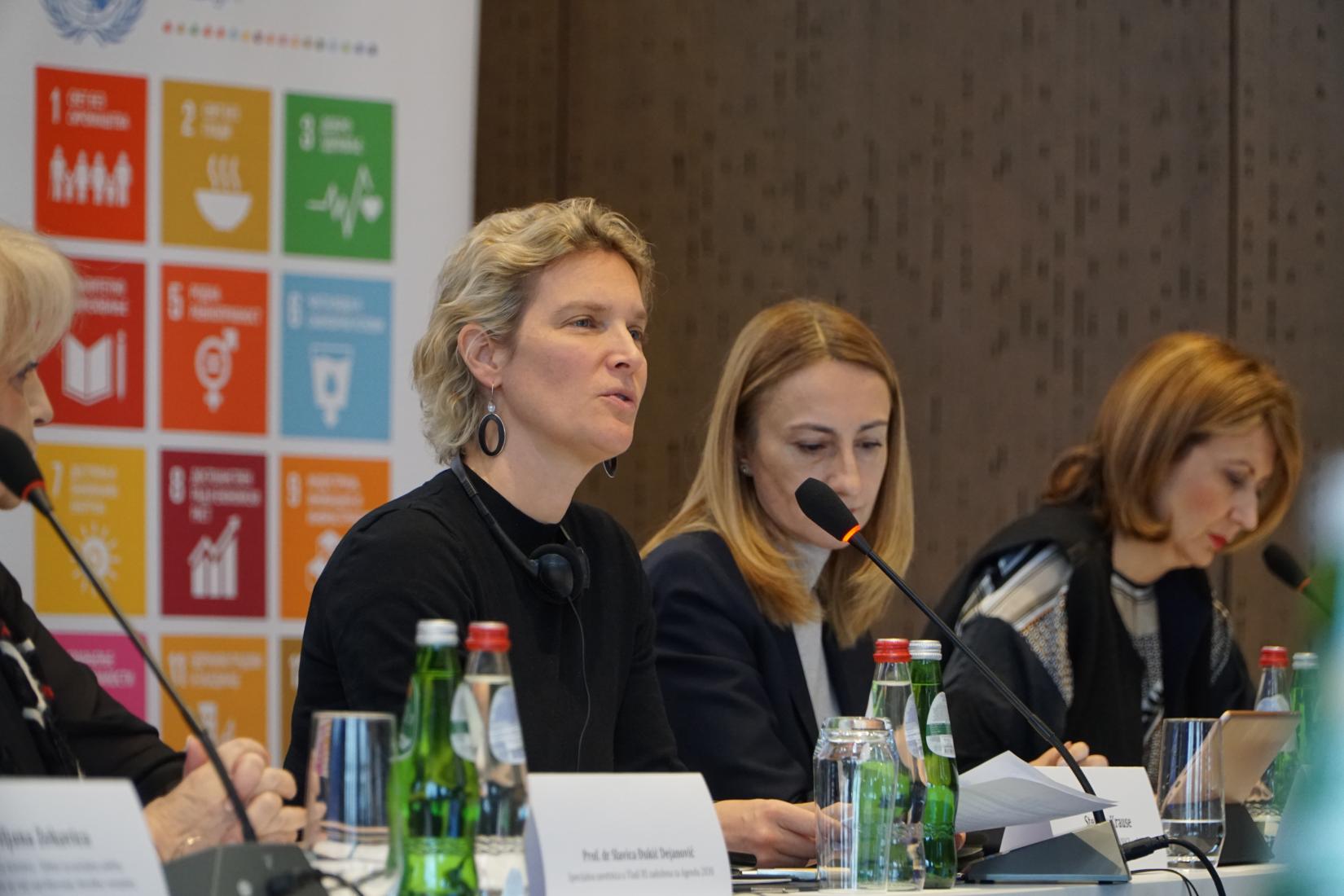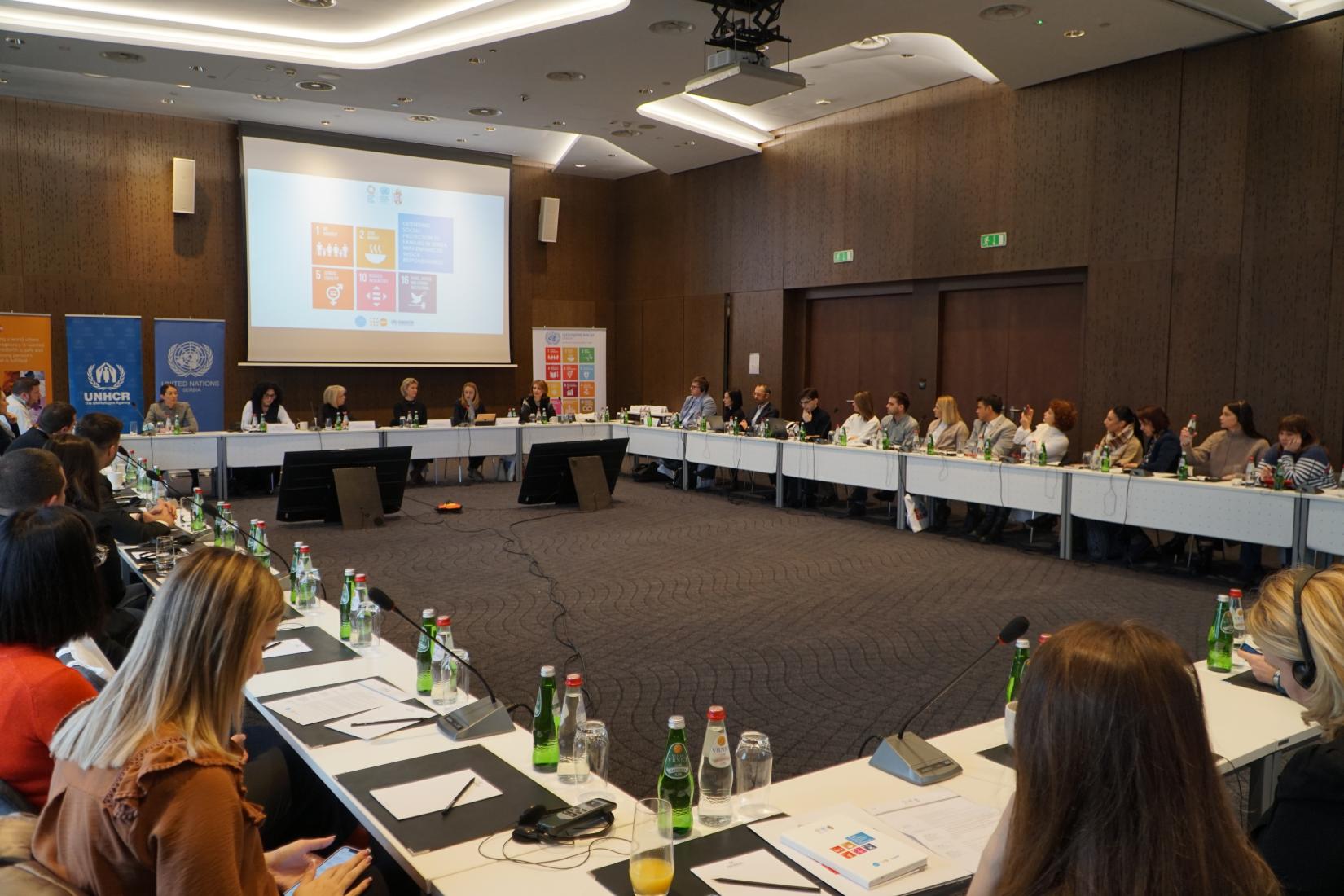Social Policy Workshop of the Joint SDG Programme - Social protection and needs of the most vulnerable population groups
12 December 2022
Belgrade, 12 December 2022 - To enable the exchange of knowledge and policy implications in combating poverty in Serbia, the Policy Workshop on “Extending Social Protection to families in Serbia with enhanced shock-responsiveness” was held today with the participation of decision makers and practitioners from key government ministries and agencies at the central and local level, as well as representatives from civil society, academia, the UN Serbia Team and the donor community.
As the economic recovery from the COVID-19 pandemic recession is stalling due to the Ukraine crisis, vulnerable and marginalized communities in Serbia are facing specific challenges. Bearing the brunt are families with young children, women-headed households, older persons living alone or in older households, refugees, asylum seekers, persons at risk of statelessness and internally displaced persons, those living in rural or remote areas, or with a minimum income. There is already ample anecdotal evidence that discretionary spending and choices related to the quality of food consumed and education among these groups are already being affected.
“Rising food and energy costs may drastically influence the living standards of children in Serbia. They may also make the share of essential spending in the total budget higher and all other non-essential spending lower. Education costs might decrease and significantly negatively affect children from disadvantaged socioeconomic backgrounds. UNICEF, UNFPA and UNHCR stand ready to support the Government of the Republic of Serbia in introducing shock-sensitive social protection measures that will hopefully respond to the current crisis, but also help the country better respond to future shocks,” said Deyana Kostadinova, UNICEF Representative in Serbia.

Sub-groups of older people, particularly in rural and remote areas, are reported to be stretched in meeting their needs for food, hygiene, or medicines.
“Through the assessment of the impact of poverty on older persons, we obtained valuable data especially when it comes to their discrimination, social isolation and poverty. Through group discussions with the most vulnerable groups of the population and one-time financial assistance to 70 households with older people, with special focus on single headed older households, in addition to helping them ease the consequences of crises, we managed to identify people who are outside the social protection system, who live on the edge of existence, and remain invisible and left behind,” said Borka Jeremic, UNFPA Head of Serbia Country Office.
Recent crises have caused displacement on an unprecedented scale. Migrants, refugees, and asylum seekers often face recurrent and seemingly insurmountable barriers in accessing social protection as a right. Social protection is anchored in international human rights principles and is a key policy tool for building resilience, combating poverty and improving economic and social outcomes among vulnerable individuals and families. It can protect people from life-cycle contingencies and external shocks that might otherwise cause them to fall into poverty.

“As a part of the national social protection system, forcibly displaced people have a right to social assistance and protection in Serbia. Within the UN-joint program, UNHCR has provided recommendations on how to further strengthen their access to these rights and the overall shock-responsive social protection framework. Refugees, asylum seekers, internally displaced and stateless people should be strongly included in it, as some of the most vulnerable social groups in Serbia. This would mean providing them timely emergency assistance and safeguarding their well-being in case any specific challenges arrive, such as the Ukraine crisis and COVID pandemic,” stated Stefanie Krause, UNHCR Representative a.i.

Through this Joint UN Programme, support will be provided to the Government of Serbia to strengthen the national social protection and shock-responsive policy framework and increase adequate budget resources for the protection of the most vulnerable population groups.
“I am happy that not only representatives of the state and international organizations participated in this workshop, but also civil society because the work on the implementation and promotion of the 2030 Agenda and SDGs is the business of all actors – from state authorities to each individual. Only by creating partnerships, through a holistic approach, can we succeed in our intention to take advantage of the development opportunity offered to us, to establish a higher degree of democracy, gender equality, equality, individualism, and cooperation in society,” said Prof. Dr Slavica Djukic Dejanovic, Special Advisor to the Prime Minister of the Republic of Serbia responsible for the 2030 Agenda.

The UN Joint Programme “Extending Social Protection to families in Serbia with enhanced shock builds on the experience of the UN in in Serbia in addressing social protection and the needs of the most vulnerable groups.
About the project:
UN Joint Programme Extending Social Protection to families in Serbia with enhanced shock-responsiveness focuses on strengthening shock-responsive social protection system to mitigate the socio-economic impacts of the consecutive crisis that hit the country.
Its aim is to (i) strengthen the data response on the impact of the crisis on the most vulnerable groups to feed into the introduction of legislative changes for adaptive social protection system (ii) apply the shock-responsive social protection principles to provide support for the 170 most vulnerable families. The project is implemented jointly by UNICEF (lead agency) and UNFPA, with the participation of UNHCR and in close partnership with the Special Advisor to the Prime Minister on Agenda 2030, Ministry of Labour, Employment, Veteran and Social Affairs, other line-Ministries, Local Self Governments, Statistical Office, Red Cross and World Bank. The total project value is $289.200, funded mainly by the UN Joint SDG Fund.





